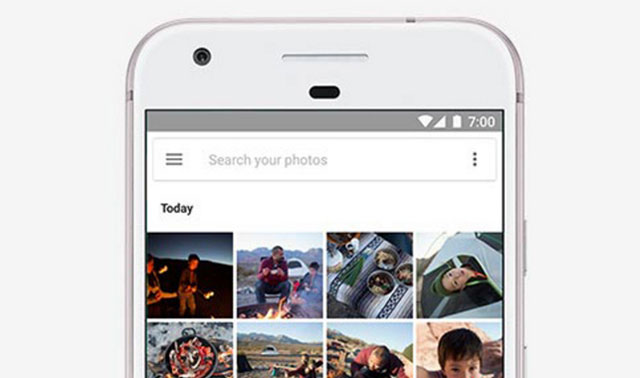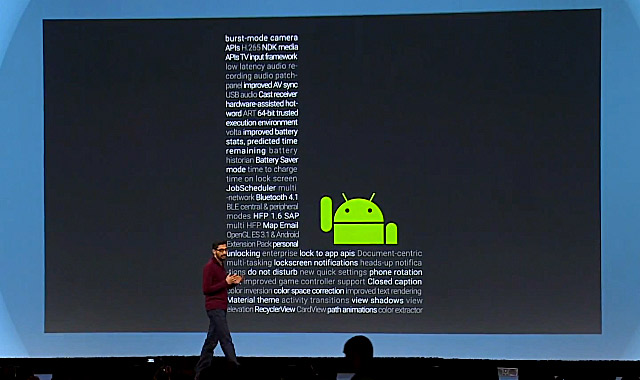 Would I buy Google Home? I’m not sure. Then again, I’m not the target audience, since I’m not interested in Amazon’s Echo either. I like shouting commands at technology: I frequently use Siri to launch mundane tasks like start a timer or call someone. Yet it’s not a reliable experience, often snagged somewhere between a slow data connection and Siri getting confused by my utterances (some reports indicate that Echo and Home still have similar drawbacks). Reliability matters in tech: ponder that next time your car refuses to start.
Would I buy Google Home? I’m not sure. Then again, I’m not the target audience, since I’m not interested in Amazon’s Echo either. I like shouting commands at technology: I frequently use Siri to launch mundane tasks like start a timer or call someone. Yet it’s not a reliable experience, often snagged somewhere between a slow data connection and Siri getting confused by my utterances (some reports indicate that Echo and Home still have similar drawbacks). Reliability matters in tech: ponder that next time your car refuses to start.
Nonetheless, Google believes this is the future. I agree, but I don’t think that future is about to arrive. That said, Google may be playing the long game here, launching hardware just to make sure it has a seat at the table.
I’m getting ahead of myself. If you missed the Google announcements this past week, the company is now quite firmly an “ecosystem” or end-to-end consumer player.
What do I mean? Well, you can buy a Google phone, log it onto the wireless of your Google router, then send instructions to stream a movie through your Google Chromecast dongle plugged into your TV, or bark at the digital assistant hidden inside the Google Home speaker to do the same. That assistant is the same one you’d talk to on your Google Pixel phone. This is accomplished by connecting to Google’s powerful networks of computers and artificial intelligence software.
Step aside, Apple
It feels a little like MomCorp in Futurama, a parody most often associated with Apple.
Yet Apple is trailing here. It may still have a Mont Blanc-level of style appeal, but is about to be sidelined in the mainstream. Not for a lack of hardware: Apple has a very decent home/lifestyle beachhead in the iPhone, Apple TV, Airport and more, all surrounded by a nice walled garden that makes it easier to stay than leave. Google, Amazon and Facebook certainly envy that.
But Apple has comparably little cred in behavioural data, the currency of the modern age. Google and Facebook not only make fortunes from data insight on how the world acts, but those stockpiles of bits are being channelled toward serious AI efforts.
When Google CEO Sundar Pichai opened the event, he pretty much only spoke about the powerful digital assistants that will personalise all our experiences.
Distributed computing has allowed machine learning (think of it as a single-task-orientated AI) to explode in use and mature rapidly. High-speed connectivity allows them to reach to other devices. When I tell Siri I need 10 minutes, I’m really talking to an online machine that teaches itself to understand me better. But it goes further than that: machine learning essentially automates complex software tasks. Given enough time, any software task. Doing your accounts in a spreadsheet? One day the spreadsheet will do it all for you.

To borrow another cartoon reference, it’s the robot built by the mad scientist in Rick & Morty, with the sole purpose of passing the butter.
Getting back to Google – its new Pixel phones have a burst photo mode where AI selects the best shot for you (and seems quite good at it). The iPhone 7 also employs its own bag of photo-related AI tricks. Use cases are plentiful and growing fast both behind and in front of the scenes. Welcome your new robot overlords, yada yada.
Building a data garden
To make much of that work, you need data. To get data, you need devices that people (you) and things (your home) use. This is Google’s strategy, one that was all but official until now. The big G has laced its shoes, combed its hair, shipped the unruly moonshot projects of Google X to live with the new parent company Alphabet, and set about being a serious company with serious hardware products and services. Pichai is certainly displaying solid leadership.
These products do not look bad. I like the mesh routers and what appears to be ample scope for applications on them. The Chromecast Ultra seems dull, but I’m a 4K cynic. The new Pixel phones truly do up the game, though distribution is still anaemic. If the Amazon Echo gets you excited, I can’t see why Google Home wouldn’t.
(The new Daydream virtual reality system also looks interesting, but that’s an entirely different topic and the outlier of the event.)
All of these help create the smart home/lifestyle garden Google wants to roll out around every willing consumer, including the exchange of data.

Google’s announcements have drawn a wide range of reactions, from gushing acolytes to outright denouncements. If I owned Google shares, I’d be comfortable with what I saw. This is a leaner, more focused Google ready to rumble Apple, Facebook, Amazon and anyone else found sniffing at its fence line — but with the intent of moving that fence aggressively.
Still, it has a few things that will need addressing. Search results in many markets remain lacklustre and Google needs to help outlets improve their visibility if it wants the quality results that will make us reliant on its AI services. It also needs to demonstrate that its frequent habit of losing interest in projects is toned back.
Finally — and most crucially — Google stinks at customer support. Apple, Microsoft, Facebook and especially Amazon are all far better at it. I’m not building my lifestyle around a company that isn’t known for listening to its supporters. The support feature on the Pixel phones shows it is aware of this. But Google will need to do a lot more if it wants to sit in the centre of our homes.
That said, I’m bullish. Pichai’s Google is starting to show its new shine.
- James Francis is a freelance writer whose work has appeared in several local and international publications




